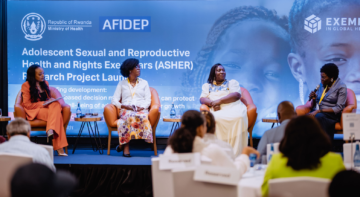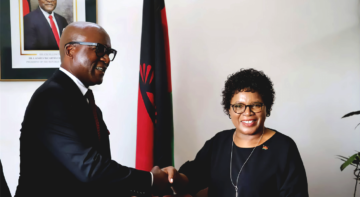News

Population Association of America (PAA)’s annual meeting is the premier conference of demographers and social and health scientists from the United States and abroad. At the annual meeting, population scientists at all career stages are afforded the opportunity to present their research in oral and poster sessions, hear others’ findings, and network with their peers. The 2023 PAA meeting will occur between 12 and 15 April 2023 in New Orleans, Louisiana.
The event will consist of 265 sessions in different programme areas. These sessions reflect the interdisciplinary diversity that makes up the PAA – sociologists, economists, geographers, historians, political scientists, survey researchers and other health and social scientists. The sessions also reflect how the field of population research has evolved with the new challenges facing our world, including the COVID-19 pandemic’s challenges to population health and well-being and the growing attention to diversity and inequality.
AFIDEP is participating through the following projects:
BUILDING CAPACITY FOR INTEGRATED FAMILY PLANNING (FP) AND REPRODUCTIVE HEALTH (RH) AND POPULATION, ENVIRONMENT AND DEVELOPMENT (PED) ACTION (BUILD) PROJECT
Tuesday, 11 April. The Demography of the Democratic Republic of Congo: 50 Years of Population Growth in a Stalled Economy and Unrest Armed Conflicts
Background: The newly created School of Population and Development Studies of the University of Kinshasa, formerly the Department of Demography, is organising this session on the Democratic Republic of Congo (DRC) population dynamics in the context of global insecurity – poverty, environmental degradation, armed conflict, unplanned urbanisation and food insecurity, among others. The session will present the Congolese demography with its assets and its challenges; analyse population, health, environment, and development integration policies and security; and discuss the DRC experience in population and development studies training and research.
Time: 9:00 am – 3:00 pm
Venue: Hyatt Regency New Orleans; Room Strand 12B
Dr Bernard Onyango, BUILD Project Population, Environment, and Development (PED) Director, will be a panellist at the session.
Background: Panellists at the session will share examples of how shifting power in research collaborations has been successful and identify common threads for what works. They will also outline some of the barriers to this type of change.
Time: 1:00 pm – 5:00 pm
Venue: Hyatt Regency New Orleans; Room Bolden 4
Dr Bernard Onyango will be a panellist at the session.
Friday, 14 April. Human Security and Sustainable Development in Africa: The Role of Population Dynamics
Background: The linkages between population dynamics, human security and sustainable development in general, and the mechanisms for actions for positive outcomes are not well understood. The session contributes to a better understanding of the linkages between population dynamics, global insecurity (including climate change and poverty) and sustainable development in Africa, with a focus on the mechanisms underlying possible connections between different dimensions of human insecurity, population dynamics and their role in achieving sustainable development. In particular, the session focuses on four dimensions of human insecurity: (i) economic insecurity (poverty); food insecurity (lack of access to food); (iii) health insecurity (e.g., inaccessibility to health care and protection from diseases and pandemics); (iv) environmental insecurity (lack of protection from harmful effects of environmental degradation and natural disasters).
Time: 1:30 pm – 2:45 pm
Venue: Hyatt Regency New Orleans; Room Strand 10A
The session is organised by the Union of African Population Scientists and the BUILD Project. It will be moderated by Clive Mutunga, BUILD Project Director.
RE-EXAMINING TRADITIONAL METHOD USE – DESPERATION OR INNOVATION – TEAM-UP PROJECT
Friday, 14 April. Session on Contraception – Methodology and Measurement
The True Prevalence of Traditional Contraceptive Use: Evidence from the Democratic Republic of Congo (DRC), Ghana, Kenya and Nigeria
Background: The definition and classification of traditional methods remain a contested issue. There are notable inconsistencies in the methods classified as traditional across studies, with implications for accurately estimating the prevalence of traditional contraceptive methods. The session examines estimates of the true prevalence of traditional contraceptive use from ongoing quantitative survey data in DRC, Ghana, Nigeria and Kenya and explores traditional and modern contraceptive methods.
Time: 9:30 am
Venue: Hyatt Regency New Orleans; Room Bolden 2
Dr Nurudeen Alhassan will present a paper at the session. Other AFIDEP co-authors are Professor Nyovani Madise, Dr Eliya Zulu, Dr Naa Dodua Dodoo, Dr John Mushomi, and Dr Maame Peterson.
Read more about our projects:
-
- Re-examining Traditional Method Use – Desperation or Innovation – TEAM-UP Project
- Building Capacity for Integrated Family Planning/Reproductive Health and Population, Environment and Development Action – BUILD Project
Related Posts





